Stephen Hsu, Augusta University, United States
FAST (Facilitated Self-Assembling Technology) is a powerful nanotechnology that enhances the effectiveness of hydrophobic molecules in aqueous formulations. Unlike traditional nanotechnology, FAST requires only one or two water-miscible organic solvents to form stable nanoparticl [....] » Read More




























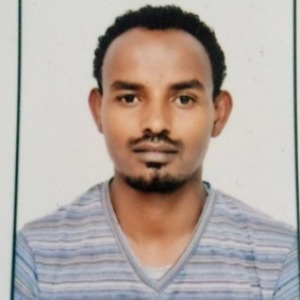

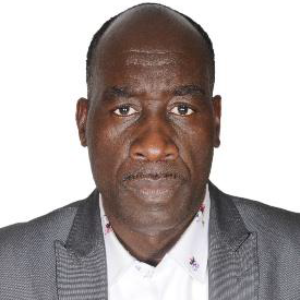





































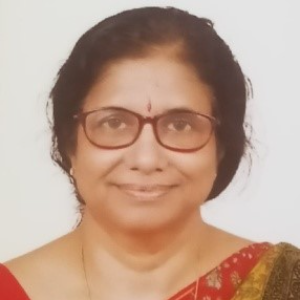
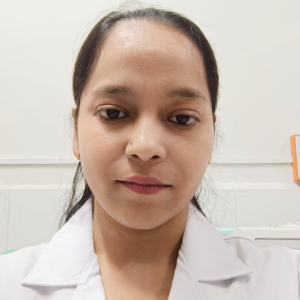















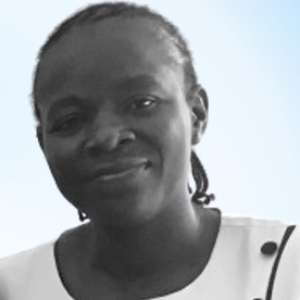




Title : Binding and activation of fibrinolytic components to group A streptococcus pyogenes enhances microbial pathogenicity
Francis J Castellino, University of Notre Dame, United States
Binding and activation of components of the human fibrinolytic system enhances the pathogenicity of Streptococcus pyogenes (GAS) by allowing a potent serine protease, human plasmin (hPm) to be present on the surface of these cells. The major receptors of hPg and hPm on these cell [....] » Read More
Title : Global clinical impact of the burden of antibiotic resistance
Reza Nassiri, Michigan State University, United States
Antibiotics are the foundation of modern medicine. Antibiotic resistance (ABR) leads to unintended consequences including suboptimal therapeutic outcomes, increased morbidity and mortality, longer hospital stays, and higher healthcare costs. ABR is a global public health challeng [....] » Read More
Title : Unveiling the uncommon pathogenesis of streptococcus gallolyticus subspecies pasteurianus bacteremia and its link to gastric pathology
Pawandeep Kaur, Hamilton Medical Center, United States
Background While Streptococcus gallolyticus subsp. gallolyticus has a well-known association with colorectal cancer, an epidemiological association between S. gallolyticus subsp. pasteurianus and hepatobiliary diseases has been suggested. Herein, we present a unique case of S. g [....] » Read More
Title : Water quality and intestinal health: Assessment of access to treated water and the prevalence of endoparasitosis in Manacapuru, interior of the Amazon region
Matheus de Oliveira Nogueira, AFYA Faculty of Medical Sciences, Brazil
Background: Parasitic infections persist as a global public health challenge, with the Brazilian Amazon region showing an alarmingly high prevalence of cases. This situation is particularly critical in the interior areas of Amazonas state, where the precariousness of basic sanit [....] » Read More
Title : A rare encounter: Disseminated nocardiosis following myasthenia gravis treatment
Deepak Jacob, St John's Medical College, India
Nocardiosis is an uncommon opportunistic infection caused by filamentous Gram-positive bacteria of the genus Nocardia, predominantly affecting immunocompromised hosts. Immunosuppressive therapy, such as Rituximab, significantly increases susceptibility to such infections . Myasth [....] » Read More
Title : Platelet to Lymphocyte Ratio (PLR) value a good indicator, to predict mortality in sepsis
Ahmed Hassan Javed, Khawaja. M. Safdar Medical College, Pakistan
Background: Sepsis is a life-threatening condition that occur due to an uncontrolled immune response to infectious agents in the body, potentially leading to functional failure in various organs. It is critical to identify patients at high risk of mortality due to sepsis and sho [....] » Read More
Title : Dengue fever: Viral, environmental, and human factors driving expansion and pandemic risk
Mohsen Nakhaie, Kerman University of Medical Sciences, Iran (Islamic Republic of)
Dengue fever (DF), caused by the dengue virus (DENV), is the fastest-spreading mosquito-borne viral disease globally and presents significant public health challenges. This comprehensive review explores the multifaceted factors influencing DENV expansion and control. We examine v [....] » Read More
Title : The correlation between Human Papilloma Virus (HPV) infection and Epidermodysplasia Verruciformis (EV) disorder: A systematic review and meta-analyses
Arezoo Esmaeili, Azad University, Iran (Islamic Republic of)
Background and Objective: Epidermodysplasia verruciformis (EV) is a rare genetic disorder characterized by abnormal susceptibility to various types of human papillomavirus (HPV), leading to widespread verrucous lesions and an increased risk of skin malignancies. The correlation [....] » Read More
Title : Evaluating the efficacy of peptide-based vaccines in cancer treatment: A systematic review
Arezoo Esmaeili, Azad University, Iran (Islamic Republic of)
Background and Aim: Peptide-based vaccines have emerged as a promising approach in cancer immunotherapy, harnessing the immune system to target tumor-associated antigens. However, the efficacy and utility of these vaccines in different types of cancer require comprehensive evalu [....] » Read More
Title : Bacteria or kidney stones: Which came first?
Niranjan Nayak, Manipal College of Medical Sciences, Nepal
Background Urinary Tract Infection (UTI) due to Salmonella Typhi is uncommon, though there are scanty reports of bacteriuria caused by nontyphoidal Salmonellae and other gram negative bacilli. However, cases of bacteriuria with UTI due to nontyphoidal Salmonellae were more freq [....] » Read More
Title : Missed opportunities in mpox surveillance in Lukulu district, Zambia (February 2025): Implications for outbreak response
Peggy Buumba Bubala, University of Zambia, Zambia
Introduction: Mpox, a zoonotic disease caused by the monkeypox virus, has historically been confined to Central and West Africa. However, the emergence of cases in Zambia highlights critical weaknesses in the country’s disease surveillance system. A recent outbreak i [....] » Read More
Title : Mpox case investigation in Chitambo district, Zambia: Lessons from the first reported case in 2024
Daliso Ngulube, Zambia National Public Health Institute, Zambia
Background: Mpox is a viral zoonotic disease with significant public health impact, especially in Africa. In October 2024, Zambia reported its first confirmed Mpox case in Chitambo district involving a foreign truck driver with suspected occupational and cross-border exposure. W [....] » Read More
Title : Analysis of measles surveillance data from the regional health center of excellence in man, Ivory Coast, January 2014 to June 2024
Diomande Jean Louty, Ministere De La Sante, Cote d'Ivoire
Introduction: Measles is a contagious viral disease that causes numerous deaths among young children worldwide, particularly in low-income countries, including Côte d’Ivoire, despite the availability of a safe and effective vaccine. The lack of surveillance data anal [....] » Read More
Title : Magnesium sulfate as an alternative treatment in acute organophosphate poisoning: A systematic review and meta-analysis
Oscar Inacio de Mendonca Bisneto, Universidade Federal de Campina Grande - UFCG/CZ, Brazil
Introduction: Organophosphate (OP) poisonings represent a serious medical emergency requiring immediate intervention. The conventional treatment involves administration of atropine. However, studies suggest that magnesium sulfate (MgSO4) could be a promising alternative treatmen [....] » Read More
Title : A rare case of ocular syphilis: Bilateral chorioretinitis and the importance of early diagnosis and treatment
Anmol Grewal, Abrazo Health, United States
Ocular syphilis is a rare but significant manifestation of syphilis that can occur at any stage of the disease, often presenting with diverse clinical features such as uveitis, optic neuropathy, or retinal vasculitis, and in severe cases, may lead to permanent blindness. The inci [....] » Read More
Title : A case of aortic root abscess and repeated prosthetic aortic valve dehiscence in the setting of rare infection with Cellulosimicrobium cellulans and Corynebacterium tuberculostearicum
Nikolas Minanov, Wayne State University School of Medicine, United States
Cellulosimicrobium cellulans and Corynebacterium tuberculostearicum are commensal skin flora that rarely cause human infection. Due to their ubiquitous nature, blood and tissue cultures identifying these organisms are regularly dismissed as contaminants, delaying appropriate anti [....] » Read More
Title : Clostridium difficile bacteremia in a case of acute appendicitis
Pawandeep Kaur, Hamilton Medical Center, United States
Background Clostridium difficile is the principal agent of nosocomial diarrhea. C. difficile is not intrinsically invasive and rarely infects extraintestinal sites. The bacterium, therefore, is not commonly detected in blood cultures. Herein, we report a case of C. difficile bac [....] » Read More
Title : A rare presentation of Acinetobacter baumannii hospital-acquired pneumonia post-liposuction in a previously healthy patient
Dan Erdman, Larkin Community Hospital, United States
A common complication of post-surgical procedures is the development of hospital-acquired pneumonia, typically occurring 72 hours after hospital admission. Hospital-acquired pneumonia (HAP) is among the most prevalent healthcare-associated diseases. One causal organism of HAP is [....] » Read More
Title : A rare polymicrobial bloodstream infection in end-stage renal disease: Enterobacter cloacae, and dual achromobacter species in a hemodialysis patient
Nicole Sonia Northover, American University of the Caribbean, United States
Bloodstream infections are a major source of morbidity and mortality among patients with end-stage renal disease (ESRD) on hemodialysis, particularly when caused by uncommon and multidrug-resistant organisms. Achromobacter xylosoxidans and Achromobacter denitrificans are rare env [....] » Read More
Title : Uncommon complications of invasive streptococcus pneumoniae post dental care
Ali Ejaz, Cleveland Clinic Akron General, United States
The gram-positive cocci S. pneumoniae, is the most common cause of pneumonia, with more than 500,000 cases reported each year in the United States (US). Rarely, S. pneumoniae may present as an invasive infection with a reported incidence of 8.6 cases per 100,000 people in the US. [....] » Read More
Title : STI testing among adolescents at higher-risk using 2021 adolescent behaviors and experiences survey
Riddhi Patel, Lambert High school, United States
Background: This study aims to evaluate Sexually Transmitted Infections (STI) testing among the high school students who reported substance abuse and high-risk sexual behavior. Studies have shown associations between STI’s, high-risk sexual behaviors, and substance abuse a [....] » Read More
Title : Cysticercosis/T. solium taeniasis, a potential public health concern in non-endemic country, Kuwait: A new diagnostic method to screen T. solium taeniasis carriers among the expatriate population
Jamshaid Iqbal, Kuwait University, Kuwait
Objective: Kuwait is non-endemic for Taenia solium infection due to strict restriction on pig-farming and pork consumption however, several cases of cysticercosis and neurocysticercosis were detected among Kuwaiti nationals with no history of travel to endemic countries. Infecte [....] » Read More
Title : The outcomes of cryptococcal disease in HIV-positive individuals following COVID-19 infection: A systematic review and meta-analysis
Hannah Ghazi Abid, King Saud bin Abdulaziz University for Health Sciences, Saudi Arabia
Cryptococcal disease is considered a major cause of morbidity in individuals with HIV in resource-limited settings. The long-term effects of COVID-19 and cryptococcal coinfection among PLWHIV have not been thoroughly investigated. This study examined the incidence of cryptococcos [....] » Read More
Title : Asymptomatic nasopharyngeal carriage of Neisseria meningitidis, Streptococcus pneumoniae and Haemophilus influenzae in adults and children: National multi-centric cross-sectional pilot study
Abdullah Al Busaidi, Ministry of Health, Oman
Introduction: Invasive diseases caused by Neisseria meningitidis, Streptococcus pneumoniae, Haemophilus influenzae are major public health problem worldwide. Nasopharyngeal carriage rate depends on multiple risk factors. National carriage study is crucial for vaccination implant [....] » Read More
Title : MDR pseudomonas prosthetic valve endocarditis successfully treated with ceftazidime-avibactam, meropenem and colistin combination
Abdullah Al Busaidi, Ministry of Health, Oman
Introduction: Pseudomonas aeruginosa is an uncommon cause of infective endocarditis (IE), accounting for less than 1% of cases, and an extremely rare cause of prosthetic valve endocarditis (PVE). Instances involving multidrug-resistant (MDR) isolates are exceedingly rare, with o [....] » Read More
Title : Comorbidity profiles and their impact on treatment outcomes in elderly patients with pulmonary tuberculosis: A single-center retrospective cohort study
Yinping Feng, Lishui Hospital of Traditional Chinese Medicine, China
Background: This study aims to characterize comorbidity distribution patterns and assess their clinical impact on therapeutic effectiveness in elderly pulmonary tuberculosis (PTB) patients, establishing an evidence base for risk-stratified clinical decision-making. Methods: [....] » Read More
Title : Development of LAMP kit for rapid pathogen detection in neonatal sepsis
Mousumi Meghamala Nayak, KIIT school of Biotechnology, India
Delayed detection and treatment of sepsis in newborns (neonatal sepsis) is one of the leading causes of high infant mortality rates in India. We are developing a cost-effective LAMP based amplification kit that can be used for early diagnosis of bacterial infection that causes se [....] » Read More
Title : Genetic diversity and drug resistance mutations in HIV-1 pol gene sequences in the Philippines: A retrospective genomic analysis
Jennifer Ashley Hila Reyes, University of the Immaculate Conception, Philippines
The Philippines has experienced a significant increase in HIV-1 infections in recent years, with a growing epidemic driven by the CRF01_AE strain. Understanding the genetic diversity of HIV-1 in the Philippines is crucial for the development of effective treatment strategies and [....] » Read More
Title : Surgical site infection pre and post COVID-19-related hygiene protocols in gynaecological oncology: Is there a difference in prevalence and severity at Charlotte Maxeke Johannesburg Academic Hospital?
Succes Brege Albert Bouangui Bazolana, University of the Witwatersrand, South Africa
Introduction: Surgical site infection is common in gynaecological oncology surgery worldwide. It constitutes a burden to patients and to the healthcare system. The COVID-19 pandemic resulted in a lockdown across the globe to minimise human contact, therefore curbing the spread o [....] » Read More
Title : Measles outbreak linked to vaccine hesitancy among children and adults in Kasumbalesa, Chililabombwe district, Zambia (December 2024-February 2025)
Clacious Chandwa, Levy Mwanawasa Medical University, Zambia
Introduction Measles, caused by measles virus which belongs to the paramyxoviridae family, remains a global public health problem, particularly in sub-Saharan Africa. Zambia continues to experience sporadic measles outbreaks, especially among anti-vaccination groups and in high- [....] » Read More
Title : The effect of coronavirus on vascular endothelial cells
Dolgormaa Janchivlamdan, De Montfort Universuty, United Kingdom
Severe acute respiratory syndrome coronavirus 2 (SARS-CoV-2) infection can cause potentially life-threatening coronavirus disease (COVID-19). COVID-19 is a multisystem disease and is associated with significant respiratory distress, systemic hyperinflammation, vasculitis, and mul [....] » Read More